Sunflower seeds are a very controversial diet option for hedgehogs. One group believes these seeds to be healthy, while another is strongly against this opinion. But what is the truth? Can hedgehogs eat sunflower seeds?
Hedgies can eat sunflower seeds in small amounts. These seeds are high in fat content and phosphorus. So, consuming sunflower seeds daily will cause obesity and metabolic bone diseases in pets.
Should we avoid feeding our hedgehogs sunflower seeds? What alternatives do we have? Catch the answers below.
Table of Contents
Are Sunflower Seeds OK for Hedgehogs?
According to USDA, a portion of 100 grams of sunflower seeds have the following nutritional values:
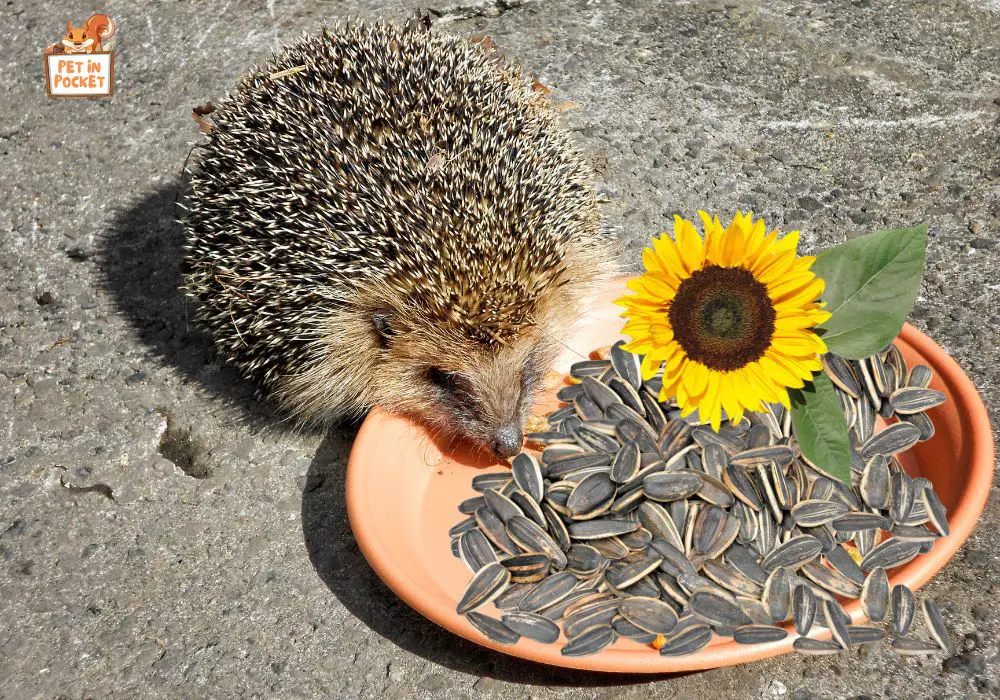
| Protein | 20.4 grams |
| Fat | 51.5 grams |
| Carbohydrate | 20 grams |
| Fiber | 8.6 grams |
| Calcium | 78 mg |
| Phosphorus | 660 mg |
As we know, hedgehogs require meals with at least 28 to 35% protein and 10 to 20% fat. To promote good health, these pocket pets also need other vitamins and minerals. Ideally, their diet should include a calcium: phosphorus ratio of 1:1 to 2:1.
Now, look back at the chart.
The protein content of sunflower seeds is definitely low. Fat percentage, on the other hand, is higher in these seeds. Finally, the calcium: phosphorus ratio is around 1:7, which is nowhere near the ideal range.
In short, sunflower seeds are a red signal for our quill balls. However, you can still feed your hedgehogs these flower seeds. Professionals suggest that sunflower seeds do not harm our prickly pigs if offered in moderation.
Risks of Sunflower Seeds for Hedgehogs
As mentioned, sunflower seeds fed in small quantities are safe for hedgehogs. But what if our prickly balls get too dependent on sunflower seeds? What happens then? Let’s explore the darker sides of sunflower seeds for hedgies:
1. Gain Weight in No Time
Sunflower seeds contain a high percentage of fat. Biologically speaking, the hedgehog’s fat digestion process is quite different from ours.
According to Ark Wildlife UK, hedgies can metabolize fat within a short time and get overweight. An obese hedgehog has fat layers under their necks and armpits.
However, the fatty layers help the quill balls survive only the extreme winter in the wild. But they are of no use for captive hedgies, especially in summer and other seasons. In fact, the accumulated fat can be extremely harmful to the pets. Let us tell you why.
As we know, hedgehogs are nocturnal, and they run for miles in the dark. They need this physical exercise to burn extra fat and for mental stimulation. Unfortunately, an obese hedgie can not take part in any such activities.
The overweight prickly balls are always tired, and they can not even move comfortably. You will find them resting in one place.
Trust us on this. Such immobile states interrupt the regular sleep cycles of the hedgehogs and cause mental stress. They often suffer from arthritis and joint pain. The hedgies can fall victim to liver damage, kidney failure, and heart problems due to obesity.
2. Grow Weaker Bones
Like any other creatures, hedgehogs require calcium to grow solid bones and skeletons. Regular meals and supplements are the only source of calcium for these pets.
When we feed the hedgies meals less in calcium, they are at a risk of calcium deficiency. It severely damages their overall posture.
Now, for sunflower seeds, the phosphorus percentage is higher than that of calcium. As per the Heavenly Hedgies, our prickly balls can not absorb the excessive phosphorus. So, it gets accumulated in the blood and prevents calcium absorption.
To tackle the situation, hedgehog’s system automatically strips off stored calcium from the bones. In no time, the pets develop calcium deficiency which leads to metabolic bone disease or MBD.
Hedgehogs suffer greatly due to MBD. Symptoms and effects of this disease are:
- Frequent bone fracture
- Broken teeth
- Overgrown jaws
- Splayed legs
- Limping
- Deformed spine
- Trouble walking
- Fatigue, etc.
Hedgehogs without proper treatment can be paralyzed for life. This is why most keepers avoid high phosphorus items like sunflower seeds.
Health Benefits of Sunflower Seeds for Hedgehogs
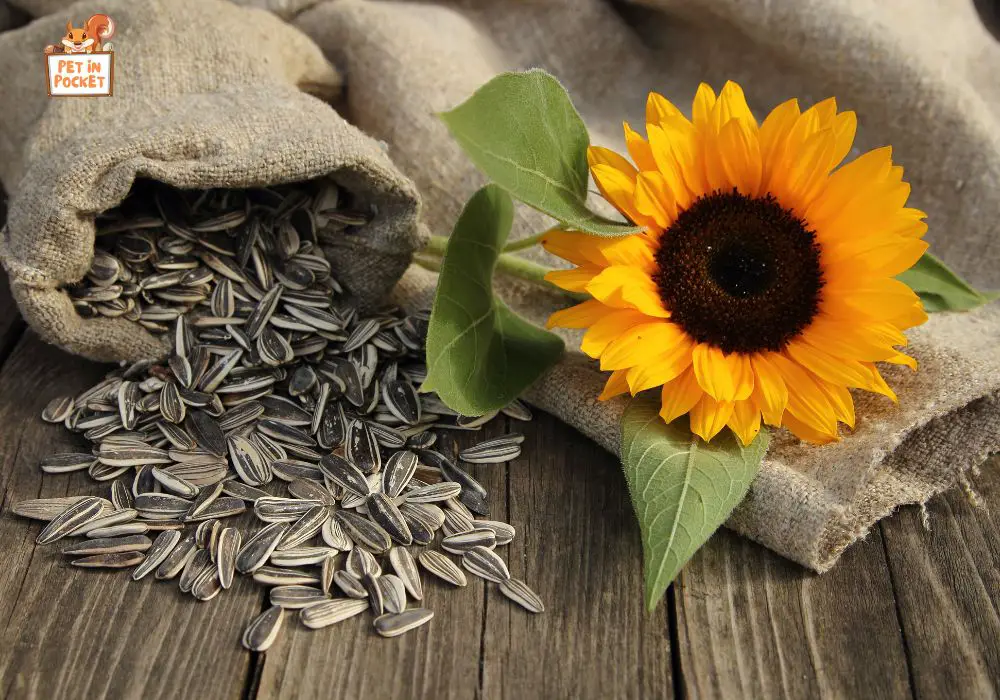
Stuffing your hedgehogs with sunflower seeds is definitely a curse for their health. They can get overweight and develop metabolic bone diseases. However, sunflower seeds can be proven healthy when fed in moderation.
Sunflower seeds are high in vitamins B6, C, and E. Besides, these seeds include a moderate percentage of potassium, magnesium, and other minerals.
Therefore, a sunflower seed treat can boost the immunity in hedgies and promote good skin. Moreover, their quill health will also improve.
How To Safely Feed Your Hedgehog Sunflower Seeds
Sunflower seeds are safe as long as you offer them to your hedgies as treats. We recommend mixing these seeds with mealworms, nuts, and other seeds.
Offering such treats in small portions once or twice a week is more than enough. Do not feed your quill balls sunflower seeds as a staple food.
Alternatives of Sunflower Seeds
Just as said, sunflower seeds are good treats for your hedgehogs. But due to the high fat and phosphorus contents, most owners do not feel safe about these seeds.
Honestly, you can go ahead and remove sunflower seeds from your prickly pig’s diet altogether. There are healthier alternative treats available for your pet.
We occasionally offer live worms and insects to our hedgehogs to promote their wild instincts. Hedgies love the sweet fruity tastes. So, we give them pieces of apples, bananas, berries, etc, once in a while to reward their good behavior.
Personally, we are not big fans of seeds and nuts of any kind. We offer our hedgies nuts and seeds once a month maybe to bring variety in their taste buds.
What Is An Ideal Hedgehog Diet?
A balanced diet for captive hedgies comprises the following elements:
- Protein matter
- Leafy greens and vegetables
- Fruits
- Commercial hedgehog food
- Supplements
Waxworms, earthworms, snails, crickets, grasshoppers, etc., are good protein and calcium sources for our hedgehogs. For greens and vegetables, we choose kale, broccoli, collard green, cucumber, lettuce, etc. Likewise, cherries, bananas, berries, melons, etc., are comparatively healthier fruit options.
Nowadays, keepers are more dependent on the commercial, low fat hedgehog foods. They seem more convenient and nutritious for the pets. But a commercial-diet based meal might not suit our hedgies always.
Supplements are not mandatory. If your hedgehogs get enough nutrition from the meals, you can avoid supplements. Otherwise, sprinkle multivitamins and calcium powders on the meals at least once a week.
Conclusion
Hedgehogs can eat sunflower seeds. However, consuming these seeds every day can lead to obesity and metabolic bone diseases.
You can offer your hedgies sunflower seeds in moderation and only as treats. Our advice would be to avoid sunflower seeds and try out healthier treat options for the prickly pigs.
FAQs
Can hedgehogs eat bird seed?
Hedgehogs enjoy the crunchy seed texture. Wild hedgies often eat seeds from the ground. However, as hedgehogs have no beak, they struggle to pick up seeds. Besides, bird seeds and seeds, in general, are high in fat and low in calcium. It is better to avoid seeds for your pet hedgies.
Can hedgehogs eat chocolate?
Hedgehogs can not eat chocolates. Theobromine, a cocoa component, is extremely toxic for the quill balls. Your hedgies will suffer from nausea, vomiting, frequent urination, and diarrhea due to chocolate ingestion.
Can hedgehogs eat honey?
Many professionals claim that hedgehogs can eat honey in moderation. But honey is high in sugar, and hedgies are bad at processing sweet elements. Besides, the high sugar content can lead to tooth decay, gum infection, and digestion issues in pets.
Can hedgehogs eat peanuts?
Hedgehogs can eat peanuts in moderation. Peanuts are high in fat and phosphorus. Excess peanuts will make the hedgies obese and weaken their bones. Many peanuts get contaminated with fungi and cause aflatoxicosis in quill balls. They can develop liver damage due to this condition.
Can hedgehogs eat mealworms?
Mealworms are one of the favorite foods of hedgehogs. However, experts advise feeding mealworms in small portions as hedgies can get addicted to these. Moreover, mealworms have high fatty content and low calcium percentage. Eating more mealworms will develop physical complexities in hedgies.

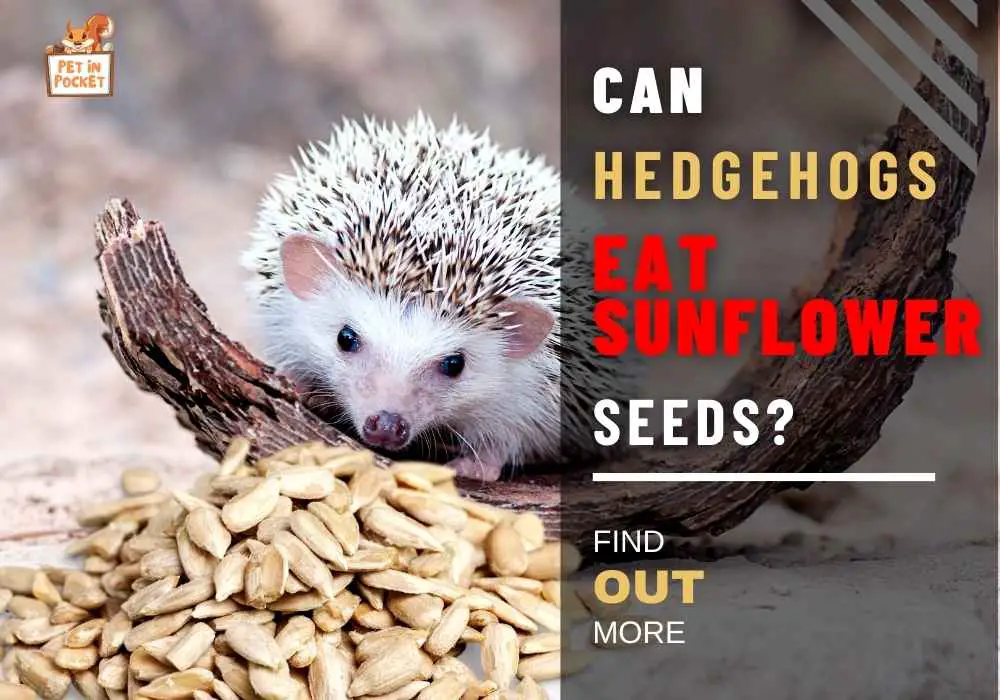

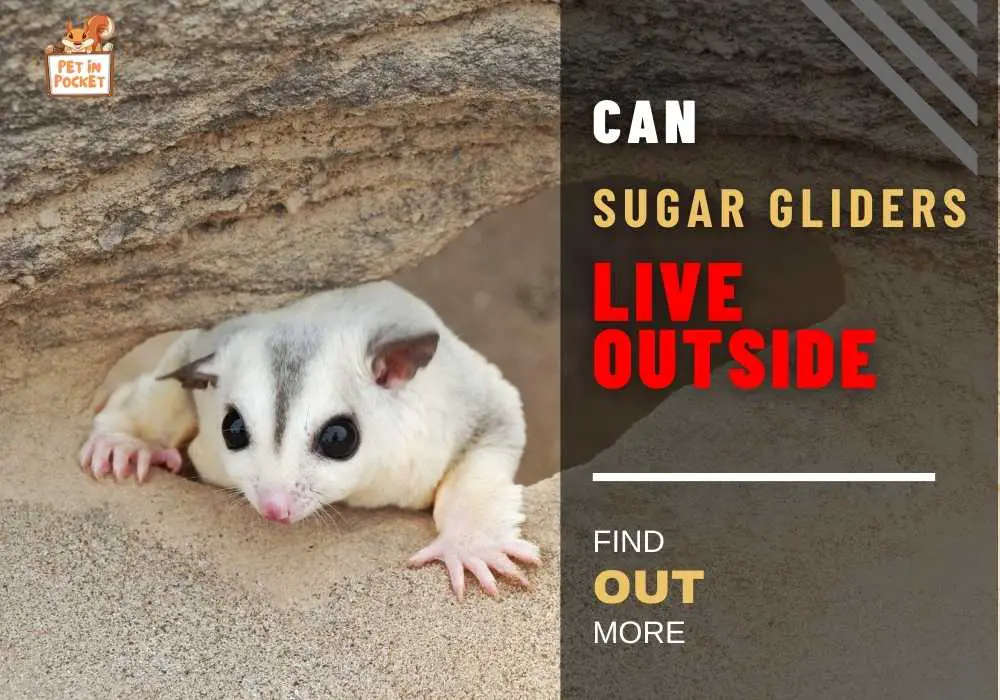

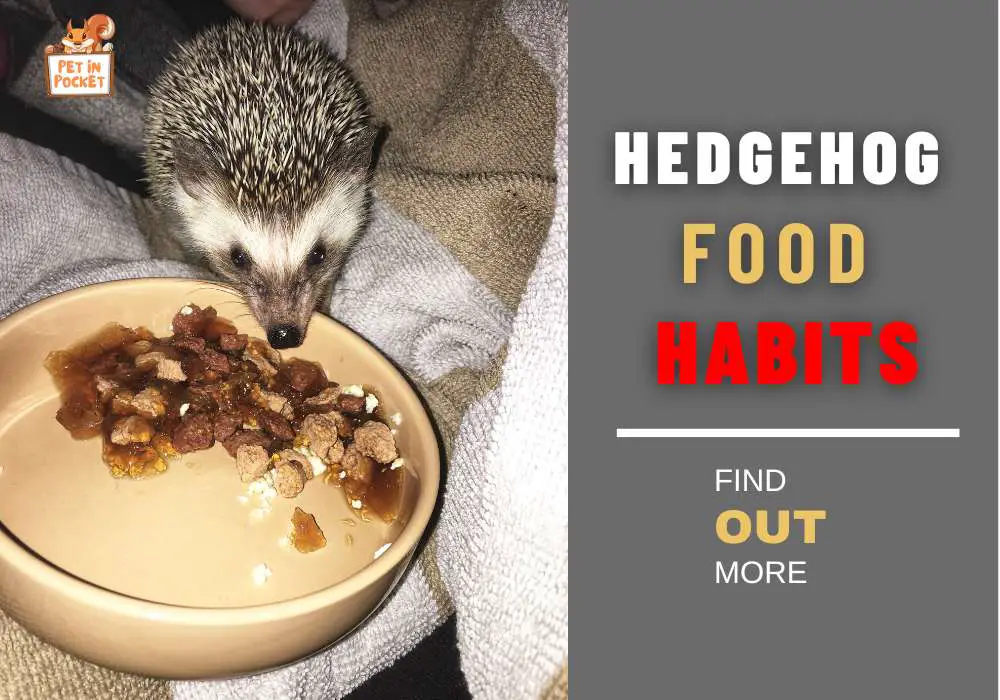
Leave a Reply